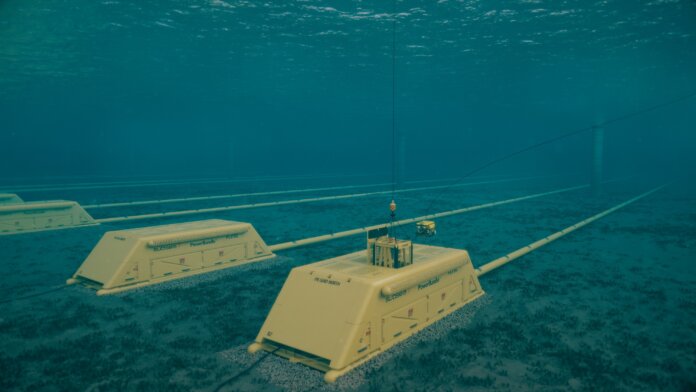Subsea 7 and technology partner FLASC B.V. have been awarded a grant from the U.K. government’s Department for Business, Energy and Industrial Strategy (BEIS) for £471,760, to further develop an innovative offshore energy storage system.
Funding has been awarded as part of the Longer Duration Energy Storage (LODES) Competition. The competition recognizes the transition to increasing wind generated renewable energy, which presents growing opportunities for storage systems that support a secure, flexible and reliable electrical power supply.
The PowerBundle concept will combine FLASC’s proprietary Hydro-Pneumatic Energy Storage (HPES) technology and Subsea 7’s proven subsea pipeline bundle technology, resulting in a scalable and robust offshore energy storage solution.
“We are very pleased to have our innovative solution recognized by BEIS, as it builds on our proactive participation in the energy transition,” says Liam Macintrye, Subsea 7’s strategic director of energy transition. “The development of energy storage solutions plays a crucial role in the future of intermittent renewable power sources, and the interconnectivity of our energy systems. We believe such systems will not only unlock additional grid connected offshore wind, but it could also play a valuable role in decarbonizing oil and gas assets.”
“This funding support from U.K. BEIS provides a major boost to our technology development initiatives, and we are extremely proud to have been selected in this pioneering and highly-competitive funding program; one of the first specifically targeting Longer Duration Energy Storage,” adds Macintrye. “Beyond the financial support, this also confirms our view that offshore energy storage technologies have a key place in the energy transition, working alongside onshore solutions towards a cleaner and more robust energy system.”
The competition will be delivered through two phases. In phase 1, projects will be expected to mobilize their proposed technologies to prepare for potential deployment on the U.K. energy system. Successful proposals will receive further funding for phase 2, to build and test a grid connected full-system demonstrator of the proposed technology and qualify it through testing. A formal stage gate review will take place between phase 1 and phase 2 of the competition. Work has already commenced for phase 1.
“Driving forward energy storage technologies will be vital in our transition towards cheap, clean and secure renewable energy,” states Energy and Climate Change Minister Greg Hands. “It will allow us to extract the full benefit from our home-grown renewable energy sources, drive down costs and end our reliance on volatile and expensive fossil fuels. Through this competition we are making sure the country’s most innovative scientists and thinkers have our backing to make this ambition a reality.”




